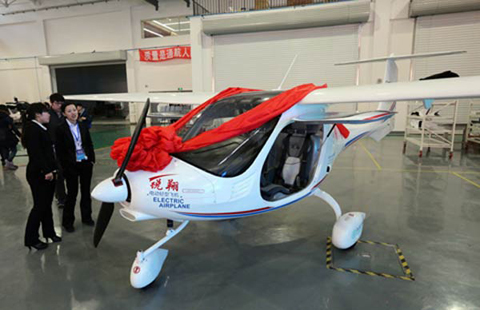Airports help landlocked Rwanda grow
By Li Lianxing (China Daily) Updated: 2015-02-09 07:44As a landlocked country, Rwanda's opportunities for expanding business are not quite as extensive as those enjoyed by other countries. One way of overcoming that is air transport, but the country, which has had robust economic growth over the past few years, is hobbled by a lack of aviation infrastructure.
"The aviation industry is critical to Rwanda," says Clare Akamanzi, chief operation officer of the Rwanda Development Board.
"Not only does it connect Rwanda to the rest of the world, but it also facilitates the growth of many of the strategic sectors identified for economic development."
Rwanda is also limited in the industry it can develop because of geographic and land constraints. But it has identified several industries, including information technology, conferences and tourism, that it feels have great potential.
"The key sectors we are promoting are services, particularly tourism," Akamanzi says. "We receive more than 1 million tourists a year, compared with fewer than 100,000 a decade ago. This has been very much enabled by the substantial growth in air transport.
"We are also positioning ourselves as a services hub for distribution and logistics as well as sectors such as information technology and financial services. To become a hub, Rwanda is relying on further growth of both passenger and cargo aviation."
To compete against the aviation neighborhood's big guns, Ethiopian Airlines and Kenyan Airways, Rwanda has launched a national carrier, Rwandair. It flies to more than 15 African cities and Dubai. It also has three flights daily to Europe. Kigali International Airport serves as an aviation hub connecting the country to eastern and central Africa. With flights to other African cities and the Middle East, it is also being used by international airlines.
The airport has expanded in recent years, and it now has an annual capacity of 1.6 million passengers, which was 600,000 before the airport was expanded. Work included building new terminals, gates and a lounge.
- Chinese companies take leading role in building airports in Africa
- Sino-Africa cooperation grows with mutual benefits
- Africans' fatter wallets shift trade focus with China
- Chinese hotel stays open in Liberia despite Ebola
- The West's green eyes on China-Africa win-win cooperation
- AU, China to cooperate on infrastructure, industrialization
- Sino-African ties look bright as trade heads toward $200b
- Chinese companies take leading role in building airports in Africa
- John Naisbitt says China is 'The game-changer'
- Apps bring bigger paychecks
- Venture capital investors gets switched on to online deals
- England's Goodwood Estate has a good story to tell China
- Zhejiang's tourism revenues up 13.2% in 2014
- TAL's expansion highlights China's shifting demographics
- Trade numbers take big hit in January

















